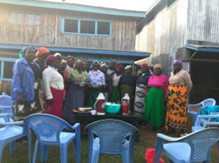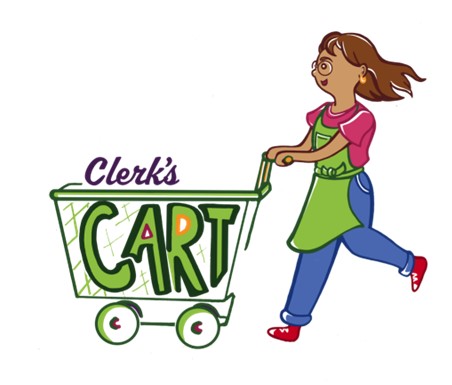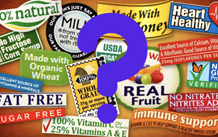Projects

HerFarm
Student Leaders: Aarti Singh, Daniel Kibet
Her Farm is a powerful force for change, empowering rural women smallholder farmers in Kenya through biofortification and seed multiplication. Our enterprise is built by women, for women, and of women, providing the tools and resources needed to make a lasting impact in the food and agricultural sector. By distributing high-quality biofortified seeds for maize, cassava, and beans, we are improving the health and nutrition of women and their families while also providing a reliable source of income through the sale of their crops. Our co-op model helps women gain market autonomy and training to meet seed scarcity, a significant problem in Kenya.
At Her Farm, we understand the importance of community and support. We foster collaboration, knowledge sharing, and resource pooling to create a stronger, more resilient community of women farmers. Our passion for this mission and commitment to making a real difference in the lives of underserved women in Kenya is unwavering. With your support, we can continue to drive positive change and create a brighter, more equitable future for all.
Clerk’s Cart
Student Leaders: Oluwagbenga Sadik, Rahul Ramesh, Sophia Day, Cecilia Karoly-Lister
Clerk’s Cart proposes a food checkout system that integrates into the existing inventory systems of a grocery store and provides each grocery store worker with a free food allowance by utilizing soon-to-be-expired food that the store will not be able to sell.
Associates already spend hours on shift facing goods and taking down items that will soon expire or are otherwise damaged. These goods would typically be donated, composted, or thrown away. By diverting them to Clerk’s Cart, grocery store workers will have access to goods based on their food and nutrition needs. Employees simply log onto the app, select what foods they would like from a prepopulated list using the store’s own waste tracking system and, at the end of their shifts, collect these reserved food items and check them out, for free.


Food Claims: From Confusion to Clarity
Student Leaders: Caroline Andrews, Priyanshi Somani
Did you know there are 147 “ecolabels” for food products alone? This number doesn’t even include the number of nutrition claims that are used. With so much consumer confusion and mistrust toward these labels, industry stakeholders have raised concerns about how to guide their labeling efforts. Based on interactions with the industry and the community, our team devised a survey to determine how customers view sustainability and nutrition when purchasing food products. By testing different packaging layouts and messaging techniques, we obtained qualitative and quantitative insights into what resonated most with consumers in terms of sustainable nutrition messaging. Our findings have identified specific strategies to communicate sustainability and nutrition through packaging, aiming to reduce confusion and increase consumer trust. We invite you to review our research and consider implementing our insights into your own company’s labeling efforts.
Tropical Lush
Student Leaders: Oluwagbenga Sadik, Marilia Ramos
Seeding the Future Foundation sponsored two students, ‘Gbenga Sadik and Marilia Ramos, to spend their summer internships in Nairobi, Kenya working with Partners in Food Solutions, a local non-profit that seeks to support food entrepreneurs and businesses. The students worked with Tropical Lush, a beverage company in Nairobi with a special value proposition of making a wide variety of fresh, natural fruit juices without additives or concentrates. They executed two projects aimed at improving Tropical Lush’s business – 1) developed a costing model that helps the company determine the unit cost of each of their juice products, and 2) developed a nutrient profile for all the company’s juice products to help implement a nutrition-focused marketing strategy.